Hannah and her partner – a paid up Geometron owner – visited Chris Porter for chat, coffee, a leafy ride, and a whole pile of setting the world to rights.
On the hottest day of 2020 I miss the turning for Chris Porter’s Mojo Rising base, mistaking it for the entrance to a stately home. Only, that’s no mistake – his small but expanding industrial unit is in the grounds of a stately home. It’s all rather…nice. There’s a coffee vendor that does proper coffee, and dairy-free options, and on the day we’re there, giant iced lattes. Just round the corner they’re building Atherton bikes, and a few units up some men are sweating in a sparse gym. There’s someone making craftsy wooden signs, and another place that looks like actual proper offices where people poke at computers. Large leafy trees provide patches of shade and green fields roll off down towards the River Wye.
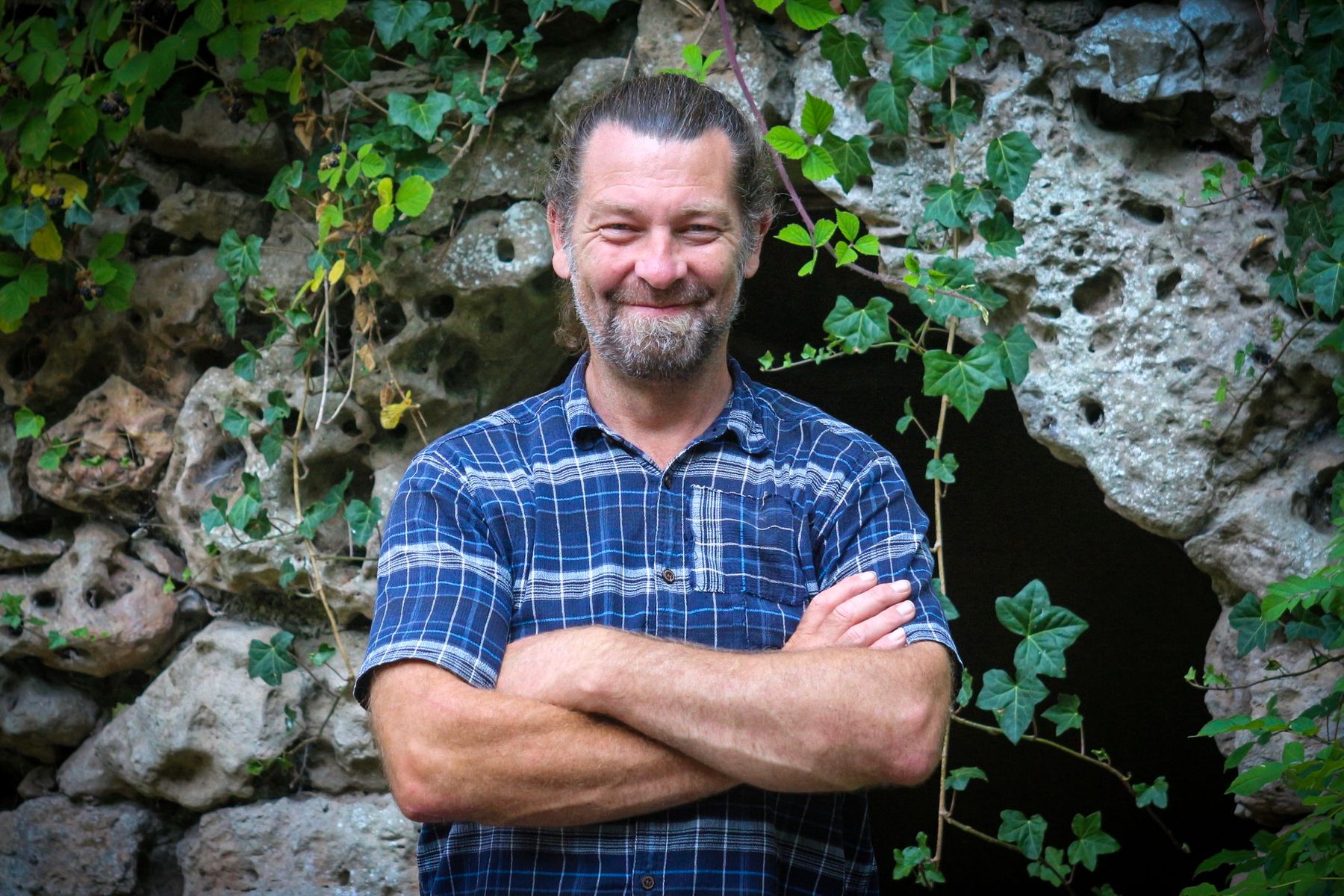
On the one hand, such a green and healthy space seems like the perfect habitat for Chris, who I can only imagine wore actual wooden clogs until his ubiquitous Crocs were invented. On the other, I can’t envisage that he holds much truck with inherited wealth, landed gentry and hereditary titles. Certainly, he seems to have a very low regard for money – another contradiction when you consider that he’s selling eye wateringly expensive suspension products.
Whenever I’ve talked with Chris before, conversation has turned to topics which in some societies might be an arrest-able offence, there’s the whiff of insurrection and anarchy about them. This is my first chance to see him in his own habitat, to relax over a beer, and to actually ride bikes. I wonder whether I’ll come away with any clearer understanding of what gets Chris out of bed in the morning.
Latest Singletrack Merch
Buying and wearing our sustainable merch is another great way to support Singletrack
Chris started Mojo Rising when Mojo Suspension ceased to exist. A key part of that former business was as distributor and service centre for Fox. When that shifted to Silverfish, Mojo Rising was born, and in doing so Chris sought to shake off some of the trappings of the corporate machine that he’d found himself part of. That ‘corporation and cooperation’ are such similar words with such different meanings is something you’ll often hear Chris say. Corporations require structures, and structures lead to bosses, and being part of a machine. ‘You just don’t want to be in the machine working for the machine. It’s why I ended up doing loads of different jobs…you just get disappointed with every job and that’s why I ended up doing my own thing being self employed whether it was despatch rider or whatever just finding shifts here and there…to not be in the machine, to do something of your own volition.’
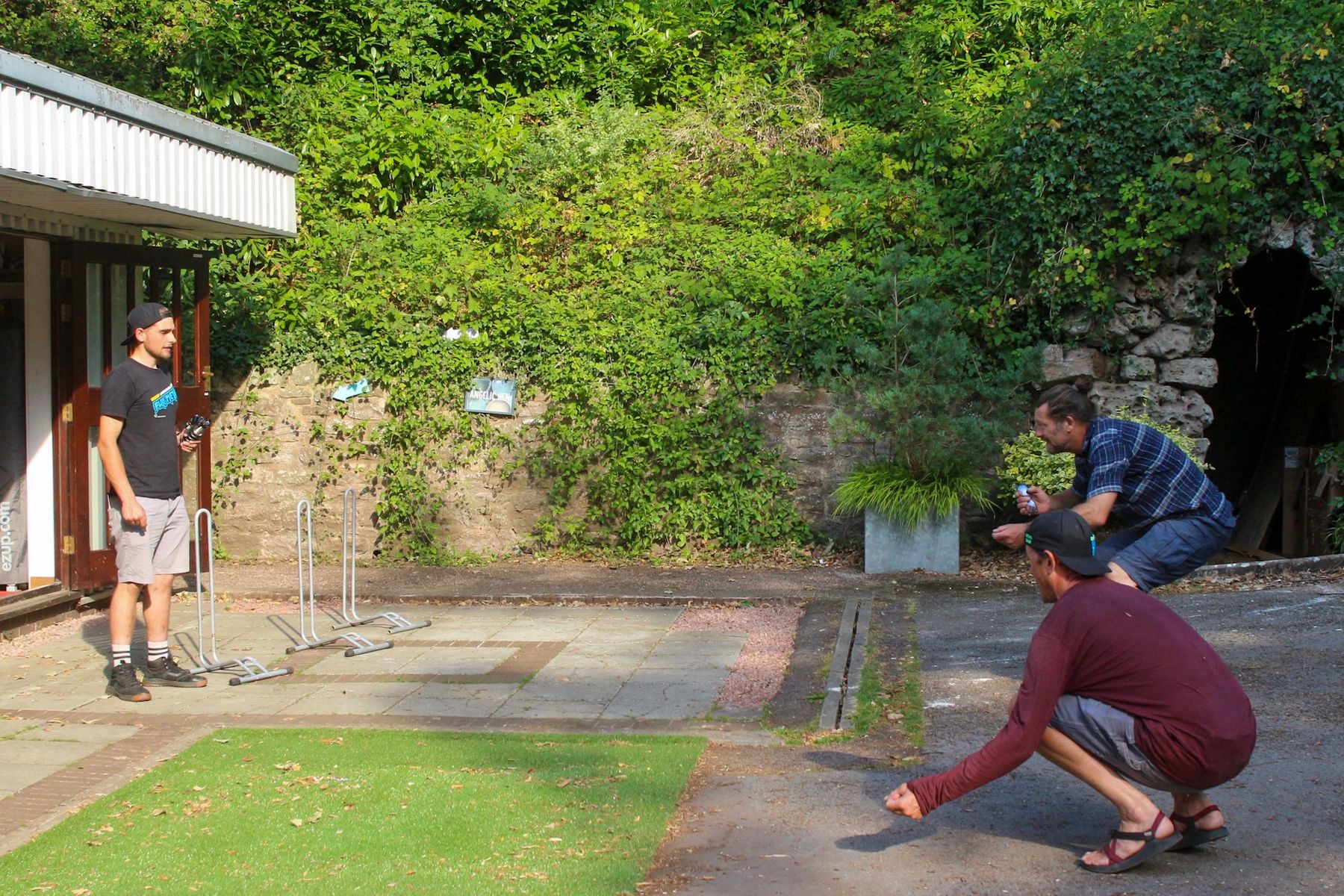
There’s no escaping the fact that he is now the boss – though as he notes that his Head of Actually Doing Stuff, Sam, will be horrified that the workshop isn’t tidier when journos are poking around and taking photos, I wonder just how much of a boss he is. I also wonder how Chris squares running a business – and trying to make at least some money from sales of Geometron bikes, EXT suspension and suspension tuning – with that other drum I’ve heard him beat: that we’re in a broken system and should stop using money.
‘There are a lot of people doing a good job or trying to good a job. But like anyone trying to do a good job in capitalism you’re doing a good job in a system that’s not a good system so you will end up probably doing more evil because of what we do. At the end of the day we’re selling a 6 grand bicycle while people are starving on the streets. How can we square that?’
‘[In An Inspector Calls] if you didn’t do good, you did bad, and I think that’s what we’re at. In a system where every 10 pounds you spend probably a quid ends up with Jeff Bezos this is a fucked up system. The people that make stuff at the bottom are the people that can’t print money. They’re the ones that have to use it. The people that print money are the banks and the government, they don’t make anything, but they print the money for the people that make the stuff. The people that make the stuff, that put value into stuff, add value – mill the flour, weld the aluminium – the people that put extra value into the raw materials, they have to use money that’s been printed by some other person. The system is broken.’
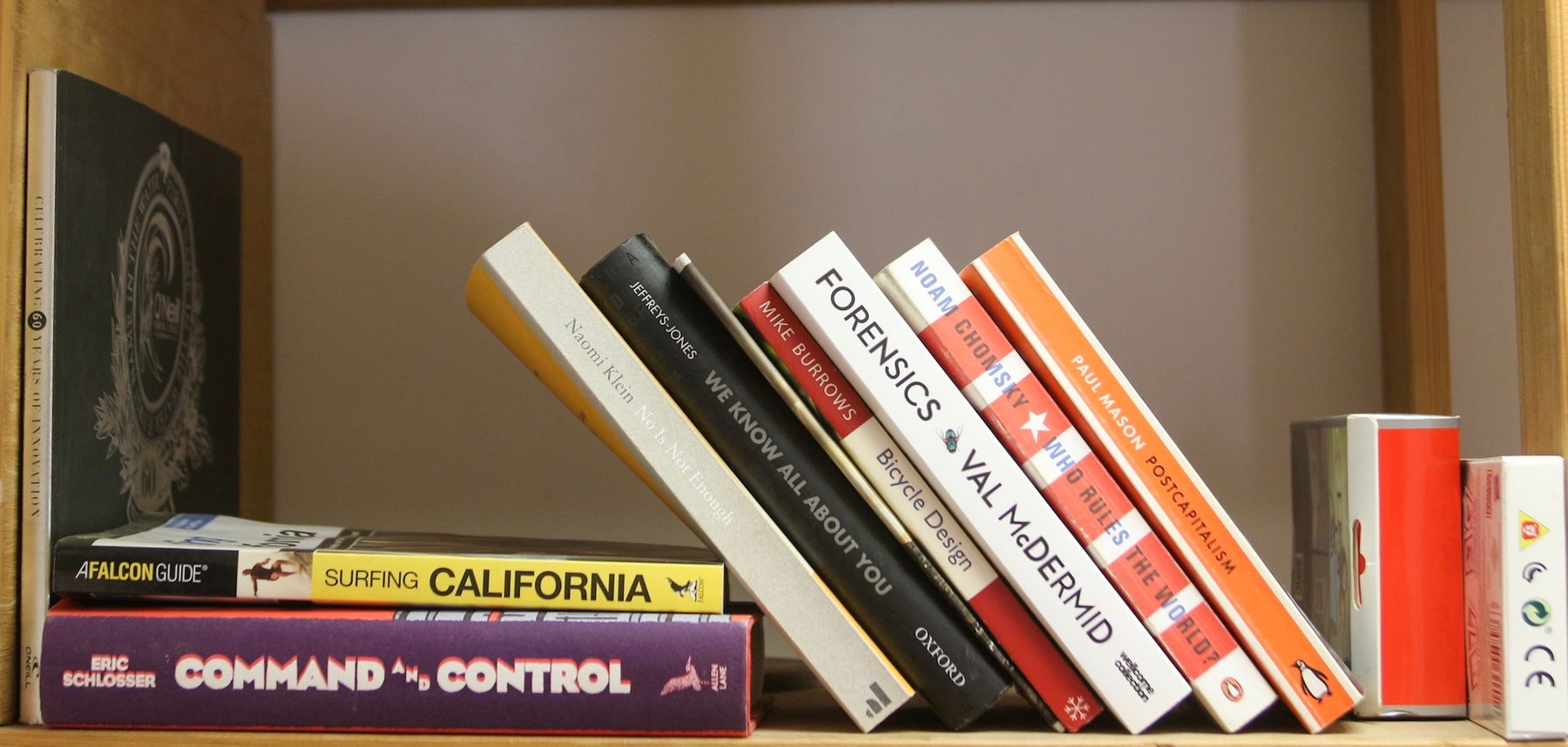
‘If you look too closely into the system you just despair, so you just have to at a certain point step away and let the world carry on with what it does and just try not to do anything too negative.’
There’s so much to unpick in here, but there are themes I’m familiar with from previous conversations I’ve seen and heard. The relationship between workers, skills and production is one. The sense that everything is connected is another.
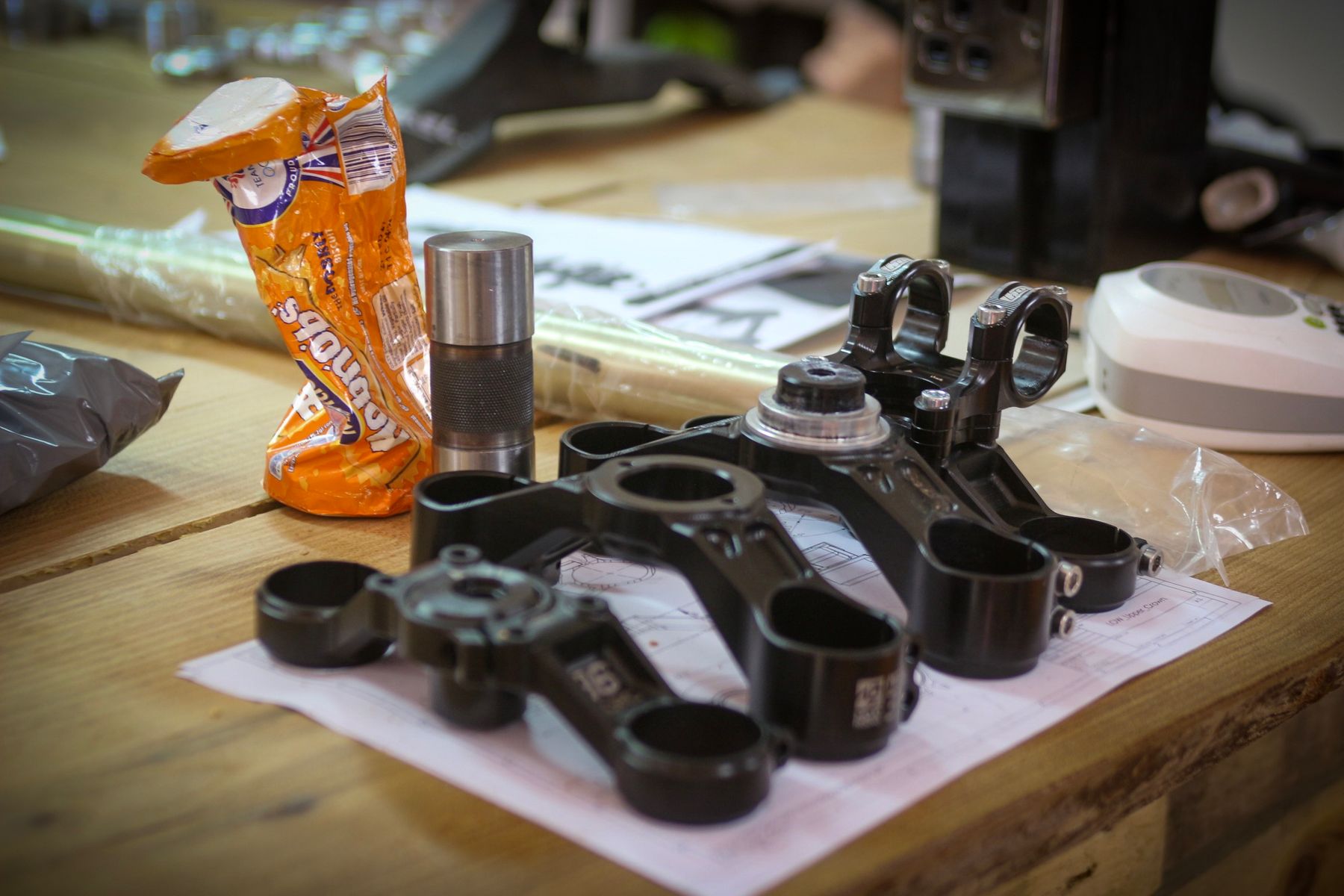
Fast forward in time to 2021, with supply chains disrupted in numerous ways and travel restrictions continuing to disconnect our previously mobile world. Chris’ take on the things that are wrong in the world seems especially relevant, prophetic almost. When we met, the EXT ERA fork was about to be launched, but even then supply chain delays were throwing spanners in the works. Chris noted that it had proved impossible to construct the whole fork in Italy – there simply wasn’t the means to produce magnesium lowers in Italy, or even Europe. Sure enough, forks have become one of those key components that have held up bikes from being completed and sold – the small number of factories with the means to produce forks has led to a log jam.
Perhaps there’s some mystic magic in that man bun that Chris ties and reties as we talk. It’s not just forks where there’s foresight – the almost literal log jam in the Suez canal plus the collapse of our international aviation habits might well have been predicted by Chris. He was certainly of a view we had things all wrong, that we’d made our vast world too small.
‘I don’t fly any more. That seemed unacceptable years ago and I only flew for business because it was really difficult to get to California from South Wales without flying. It was brought home how unacceptable and how disruptive to human thought flying is when we rode a motorcycle from London to Beijing. That is possible to do…. you can go a long long way if you just don’t turn round. But then we flew back. 11 weeks out, 11 hours back. And all of those things that we saw, all of those people that we saw, all of those cultures that we went through, all of those difficulties, all of everything between London and Beijing, we were completely cut off from, we didn’t understand any of it. The same as if you fly to Spain, you’re not flying to Spain, you’re teleporting. That’s not travel. If you drive to Spain or take a train to Spain then you start to smell the fields as you drive past them.’
‘We’re planning a trip now, we’d like to go to Japan…and we’re looking at it and going ‘how can we get there without flying?’ And you can, you can catch a train, there’s a train that goes all the way from Moscow straight through to Beijing…and you start to think well that’s going to take a long time, but shouldn’t it? If you’re going round the other side of the world that should take a long time, it shouldn’t be easy, you shouldn’t be able to go to Jamaica for the weekend. That’s not acceptable or sustainable.’
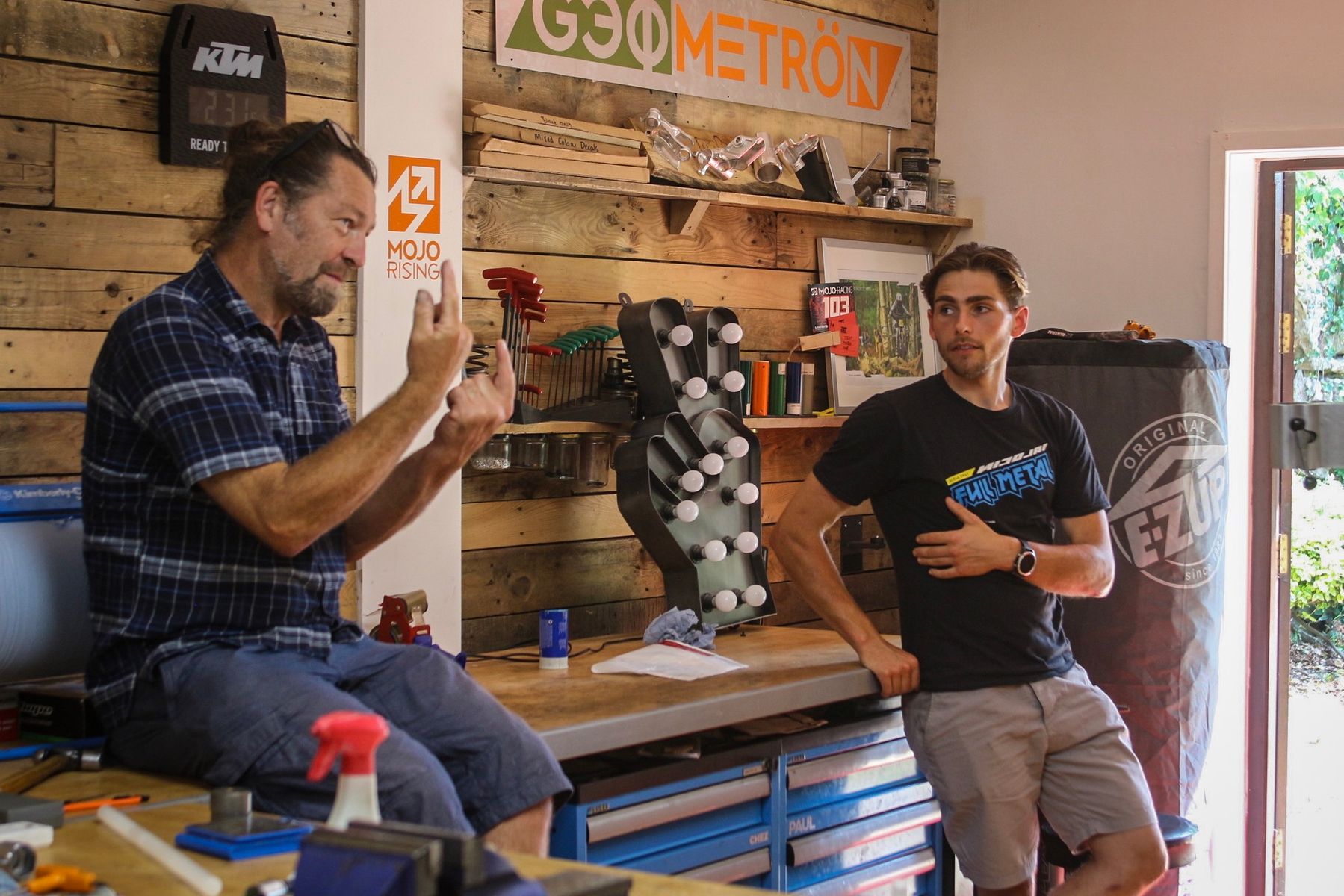
In today’s world, the idea that things take a long while to get around the world is one we’re having to adapt to. Bike parts, garden furniture, camping gear – their high speed production and transport from maker to buyer is no longer guaranteed. And certainly whatever method of transport you choose, getting around isn’t easy. Between Covid and Brexit we’ve become more aware of the international network of people and business on which our daily lives have come to depend, and perhaps also to appreciate more the local services and people on our doorstep. While governments try and figure out the right way out, or forward, you perhaps shouldn’t be surprised to hear that Chris thinks it’s on us to make change happen, we can’t wait for governments, or for people to change governments.
‘There are people doing good stuff, whether they’re doing right or not…..a couple of years ago we had the Extinction Rebellion, that’s really good. We had the school climate strikes, that’s really good too. Those are good things, but the block always seems to be that in order to make a change to the system you end up having to be part of the system. And I think we should just do the right thing but without asking the government to legislate for doing the right thing. We should all be doing the right thing, we should be trying to get stuff made as locally as possible so that we don’t have to bring stuff from China, and we should be doing the best job that we can so there’s no waste, and we can fix what’s there, and we can look our customers in the eye and say we’ve hopefully done the best job we can for everyone.‘
This ethos translates into an array of products and services that are based around longevity, fixing and improving. Geometrons made of metal, with ‘mutators’ to adjust the geometry. UK made Morc fork crowns to adjust fork offset and improve stiffness of existing products – rather than making whole new ones. Suspension servicing and tuning that aims to keep products on the trail long after they’ve been improved (maybe?) and replaced by newer models.
‘Hopefully we’ve done a good job of what we do. We’ve learnt a skill, we’re pretty good at passing on our knowledge without putting it behind…some kind of patent barrier so that all our customers get better at doing what they do – riding their bikes too. So hopefully we’re doing a little bit of good.‘
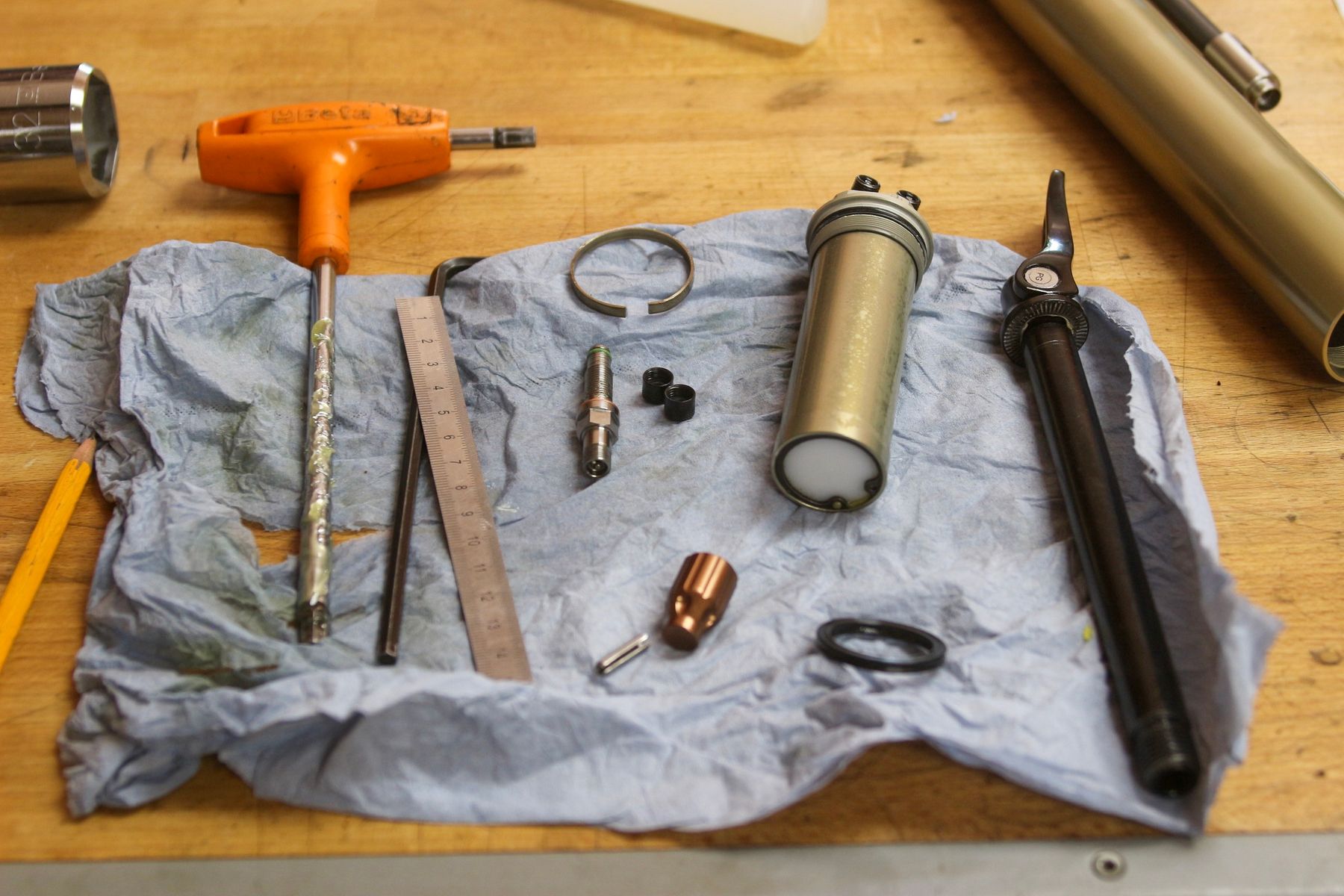
Doing the best job he can, and doing his best to do no evil, are part of how Chris aims to conduct his business, and a visit to its recycled pallet wood lined HQ with its climbing wall, indoor/outdoor workshop space and leafy surroundings should certainly give you the feeling that it’s working. The ‘why’ part is the joy, and the love.
‘It’s always been about bikes, I’ve always loved bikes, the enduring memories of childhood are about sellotaping bikes together that we’d lashed up out of bits of bikes that we’d found around the place and riding them and them falling to bits and us getting injured and eventually being able to get bikes that actually were bolted together rather than zip tied together and yeah. It’s always been about the bikes, and how they just bring you freedom. That’s the thing, bikes bring you freedom, that feeling of freewheeling down the road. You do it as a 54 year old feels like you’re doing it as a 5 year old….that same freedom exists.’
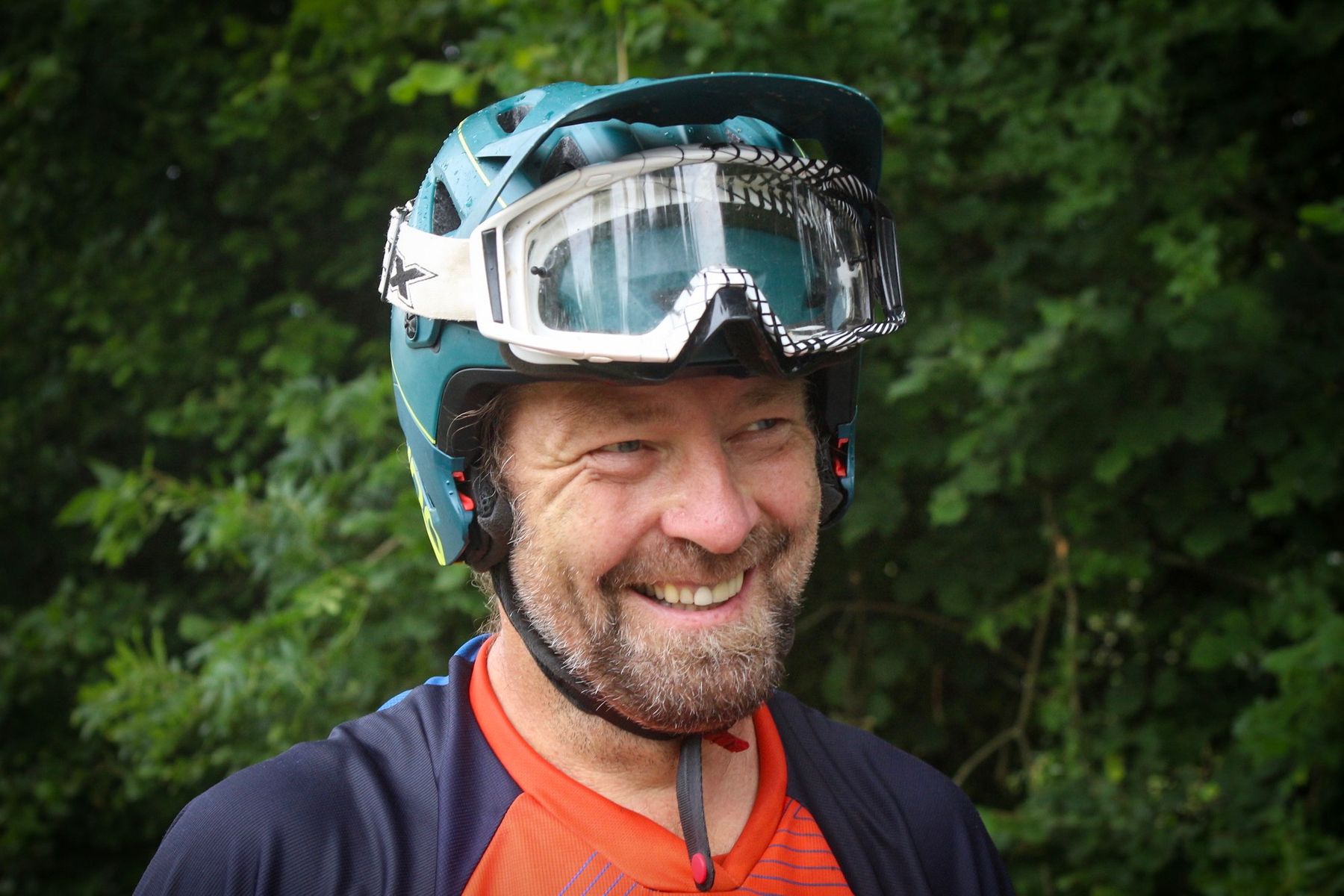
‘The woods are an amazing place to be. Woods are great, we don’t have enough of them in Britain. I love being in the woods with my bike it’s just like being a kid again. Riding in the woods with your mates, what could be better? Riding wherever you ride with your mates is amazing. And you always to find something to raise your day when you’re out. Whether it’s a buzzard flies in front of you down the trail or you see a deer, or you just notice the light coming through the tree in a certain way, there’s always something that lifts your spirits. Or you just get a turn really good and you just feel really pleased with yourself. You’ll always find something that raises your spirits when you ride.’
If Chris is the soothsayer of the mountain bike world, where might we be heading? Or, where would he take us?
‘If I found a couple of hundred grand down the back of the sofa tomorrow, I’d make a linkage fork gearbox bike with a transferable drive where the drive is moveable – you can move the drive point in relation to the pivot, up and down, so that you could make it squat or not – with a seat post on a four bar linkage, and I’d do all of that with recycled steel tubes. That would be amazing, to be able to use old bicycle tubes to make the most technologically advanced bicycle but without actually having a single patentable or technologically advanced process, just brazed steel tubes. That would be amazing.’
Given Chris’ apparent disinterest in money, it seems pretty unlikely he’s going to conjure up that sofa find, so we’ll likely be waiting for someone else to come up with the bike he describes. But count us unsurprised if we do see this bike become a reality. Until then, you could do an awful lot worse than to make the trip to the Wye Valley yourself. But be warned: for someone who’s not in it for the money, he’s got very good at making people part with it and he has a very high conversion rate from test ride to purchase. If you’re lucky, you’ll come away armed with some new knowledge about how to set up your bike better, and a few scratches from its lush trails. And if Chris is lucky, you’ll be taking a bike with you.


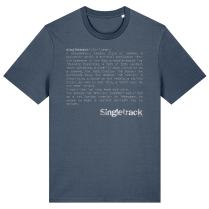

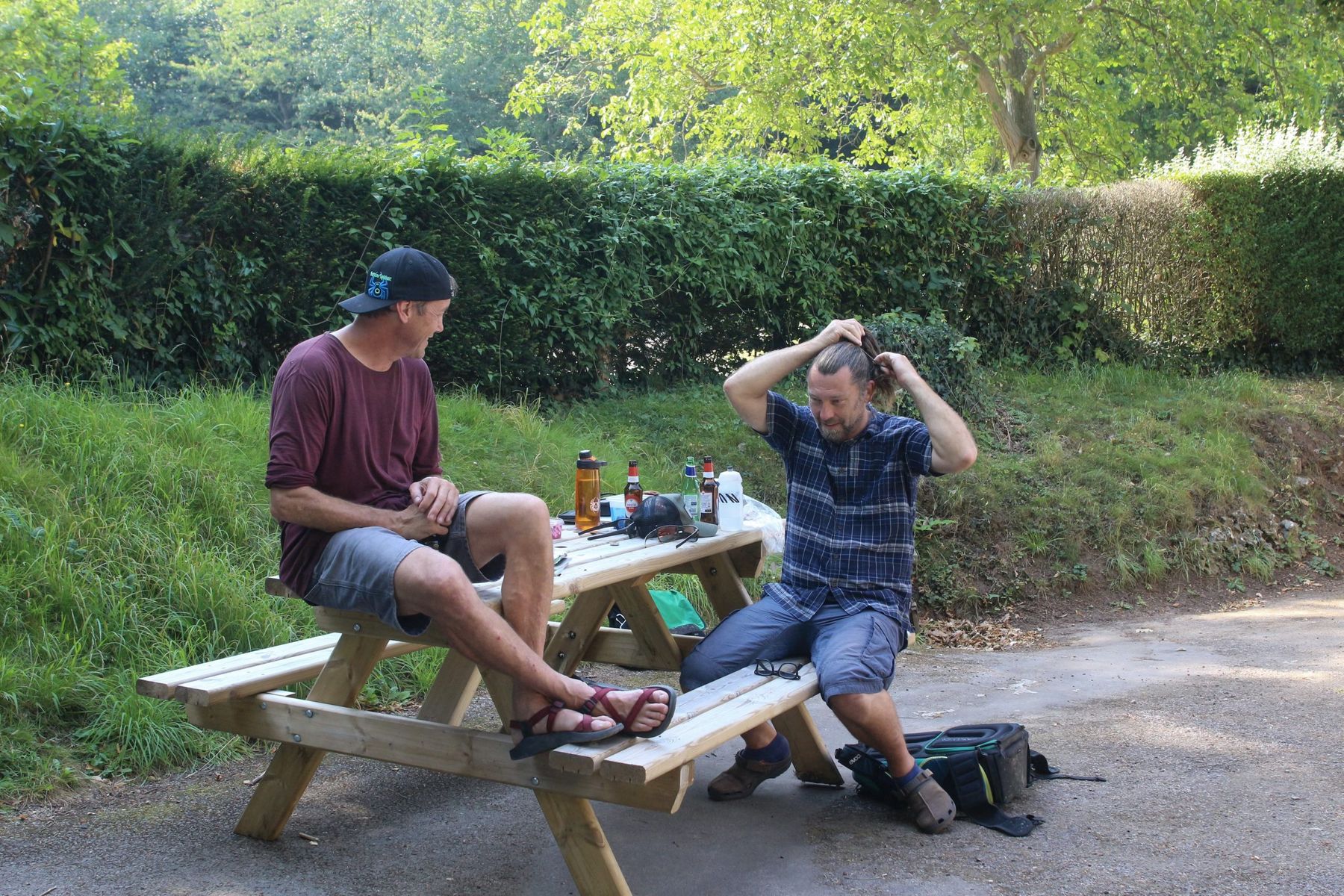
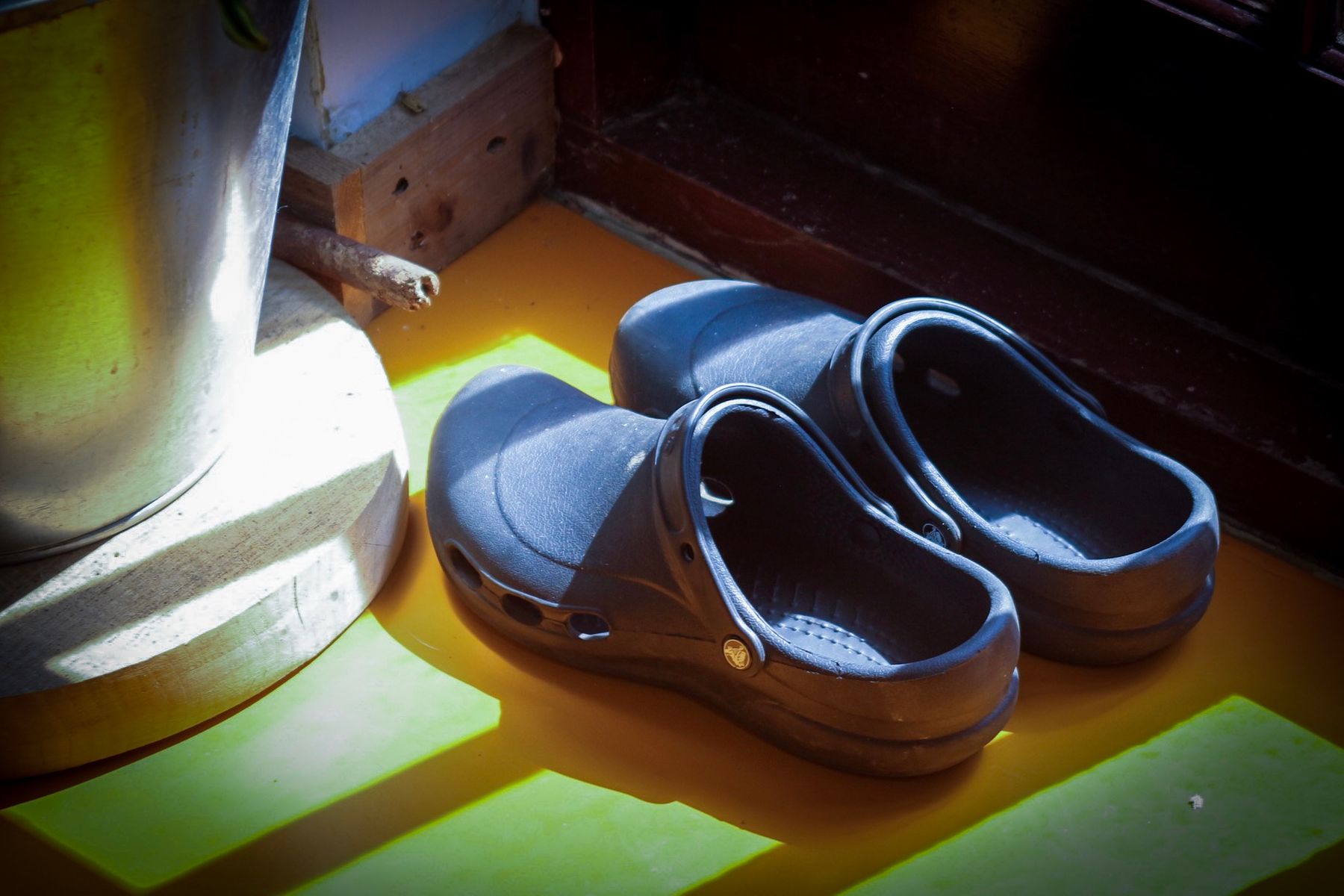
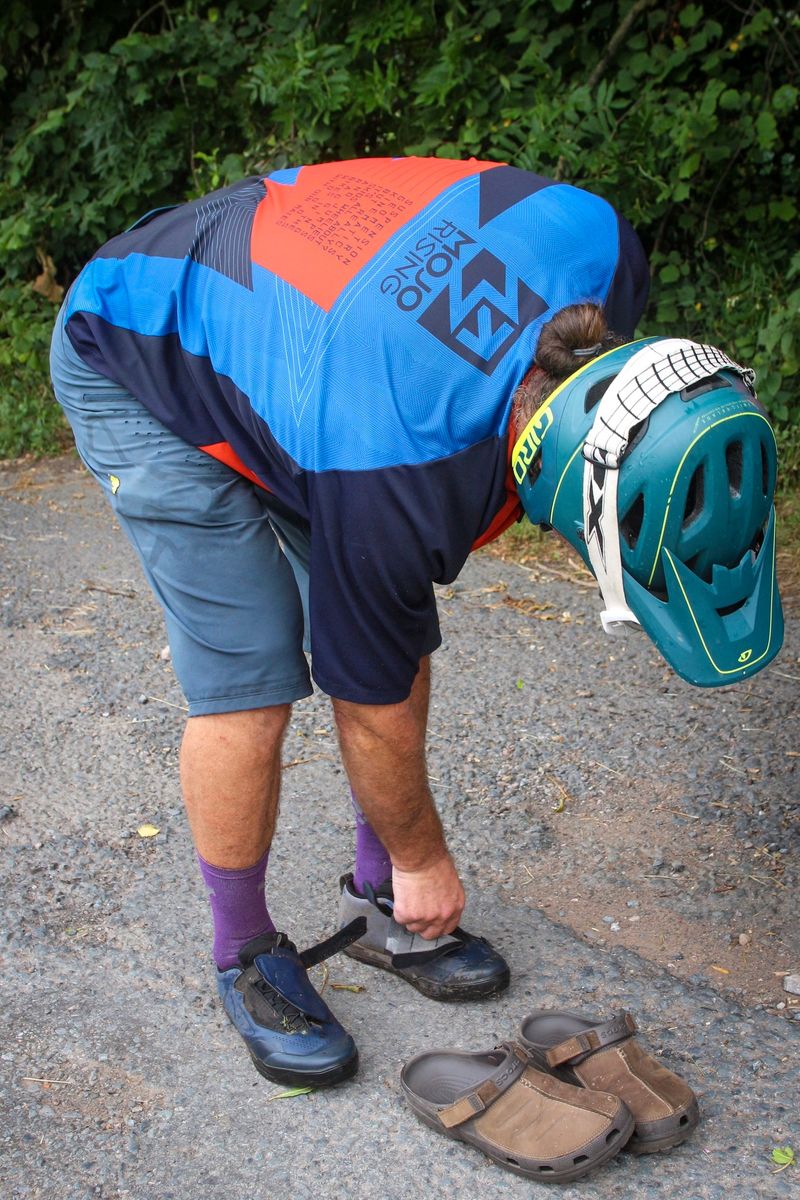

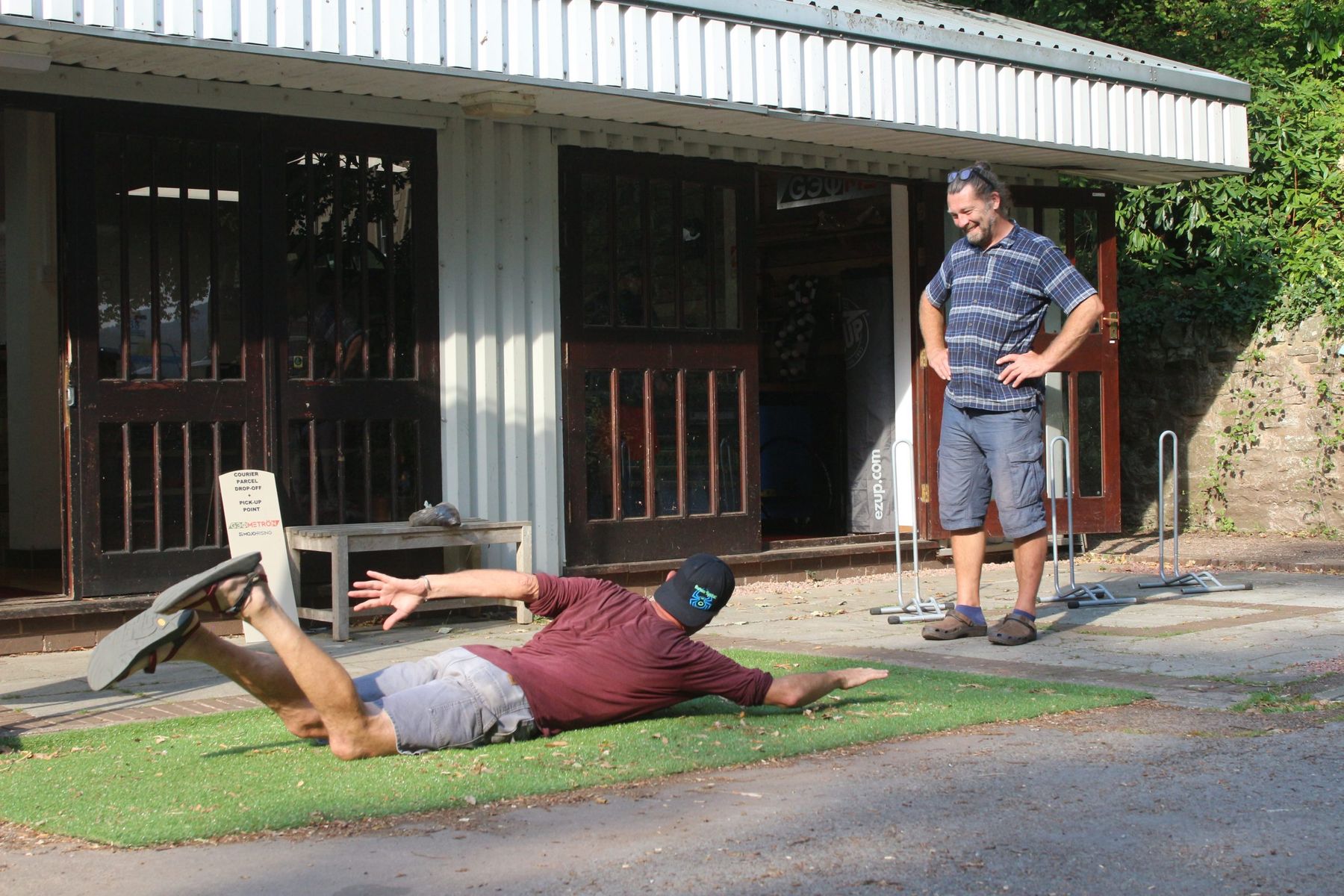
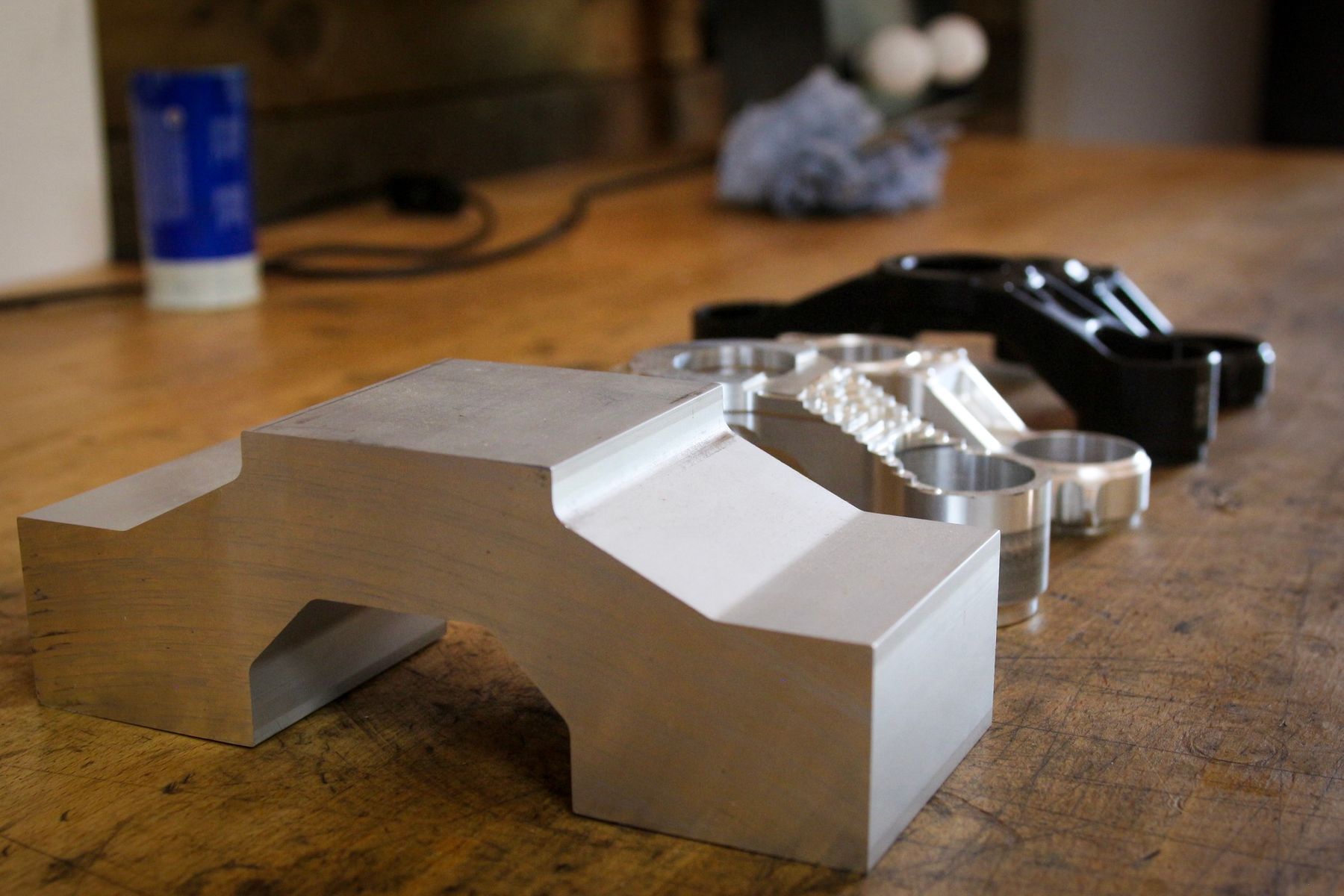
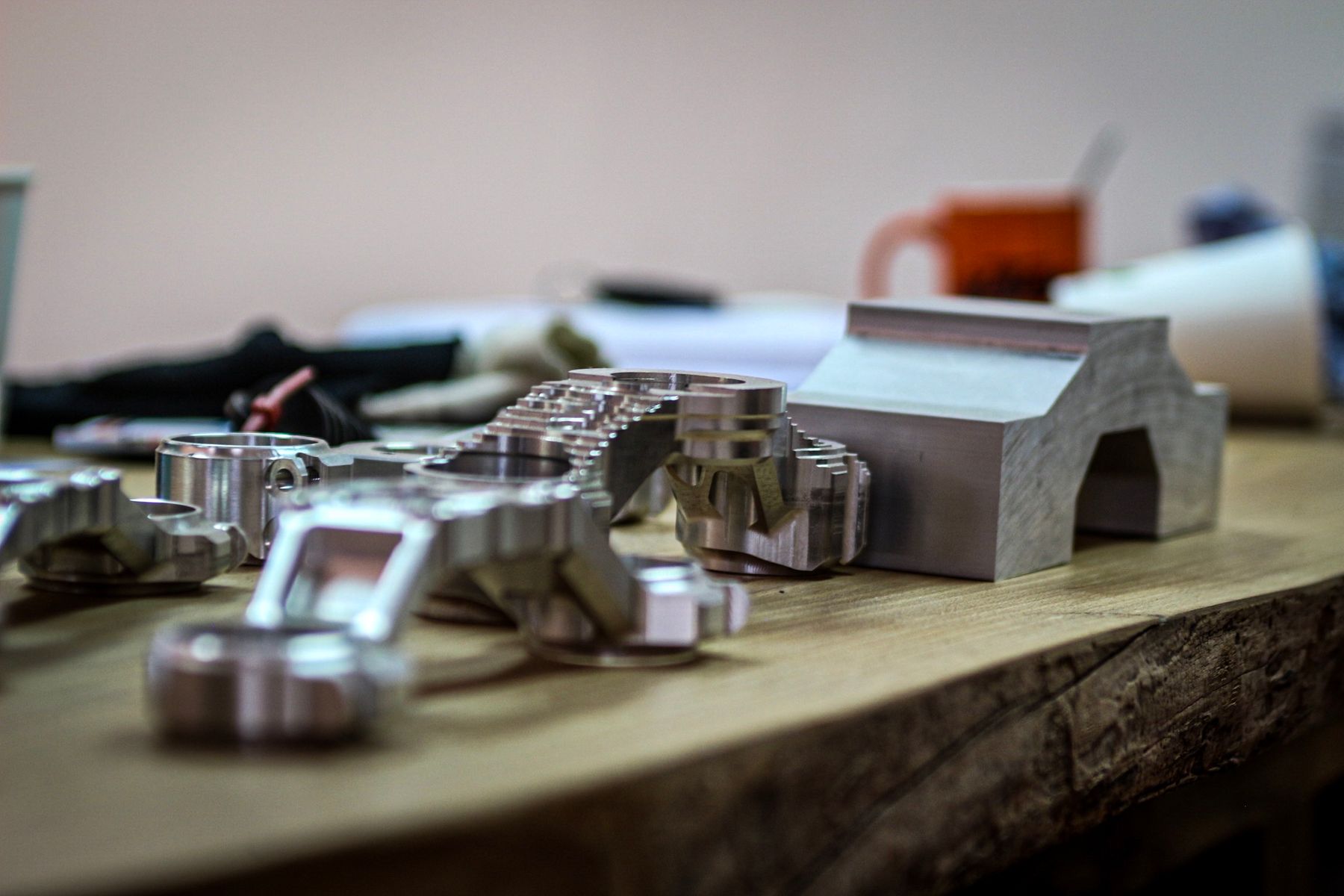
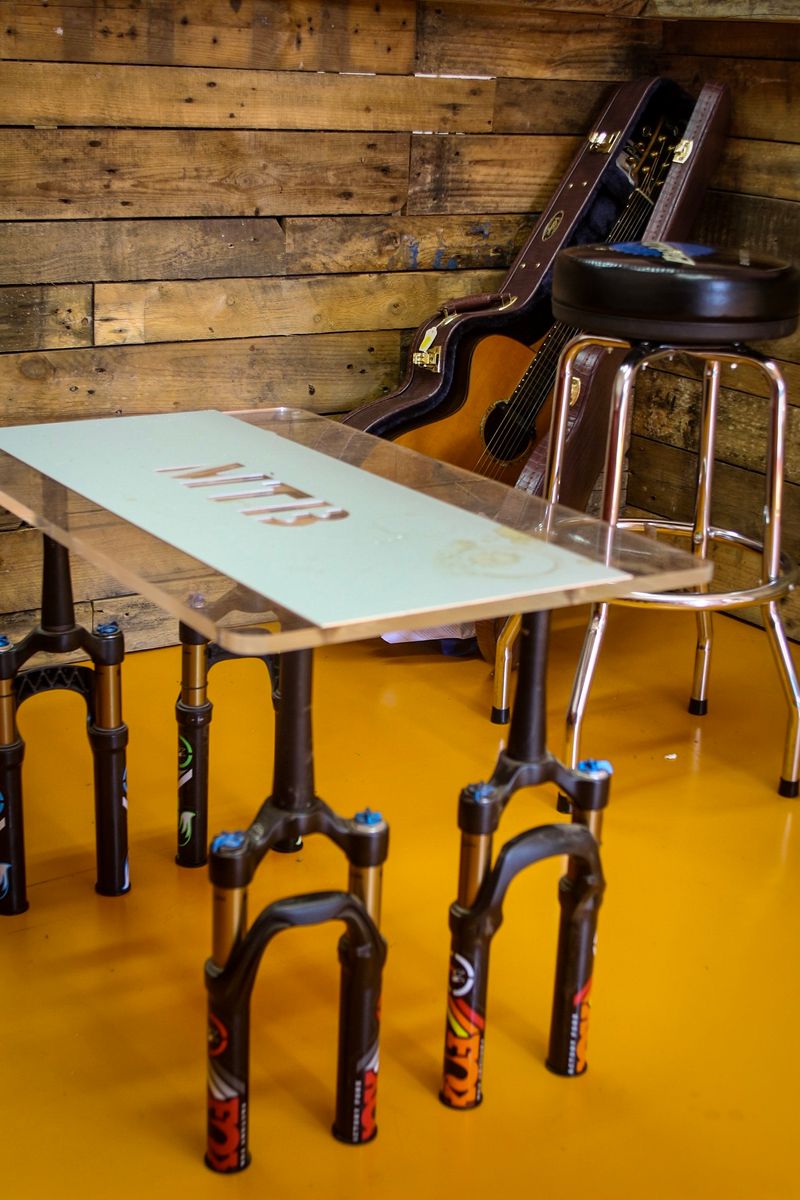
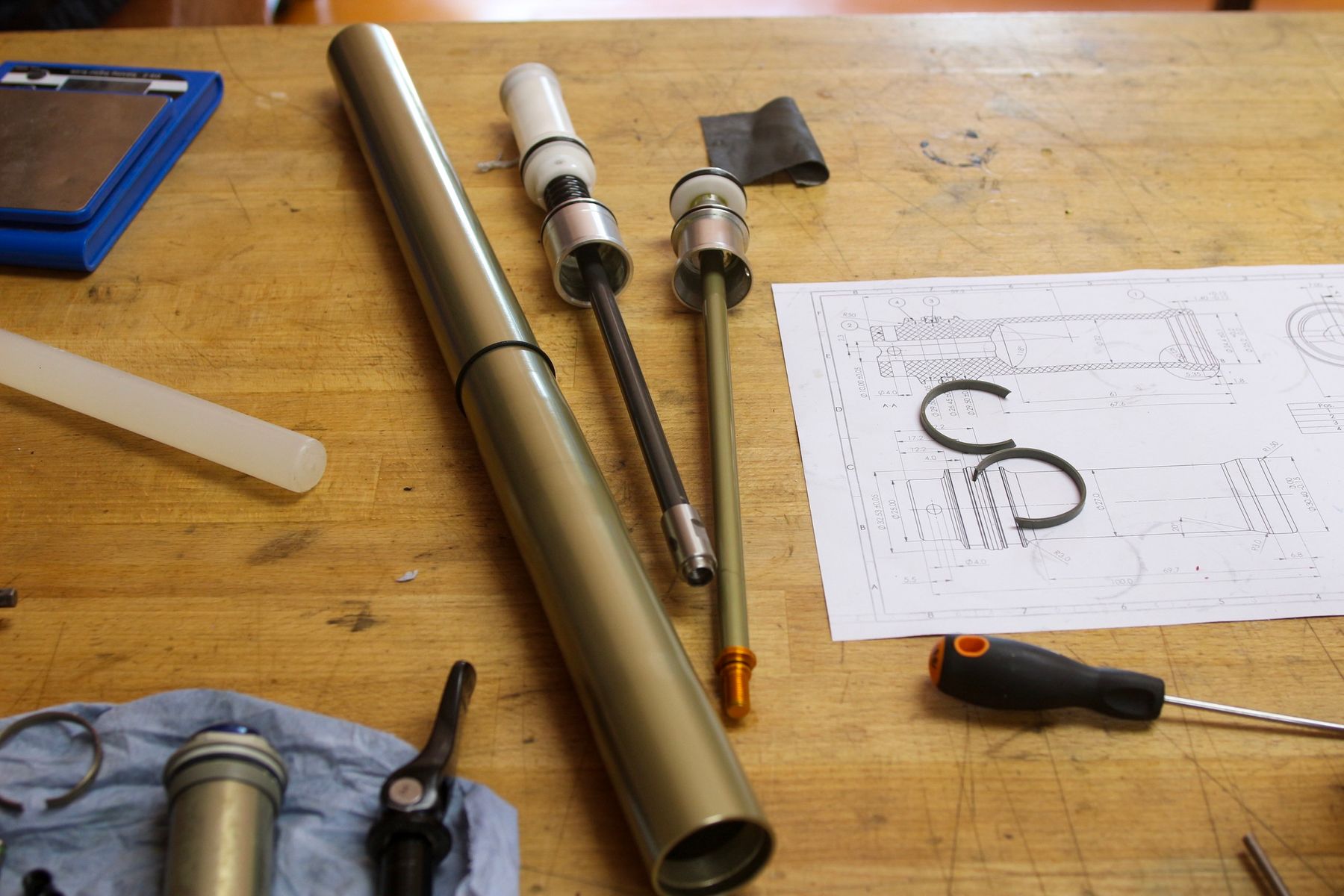
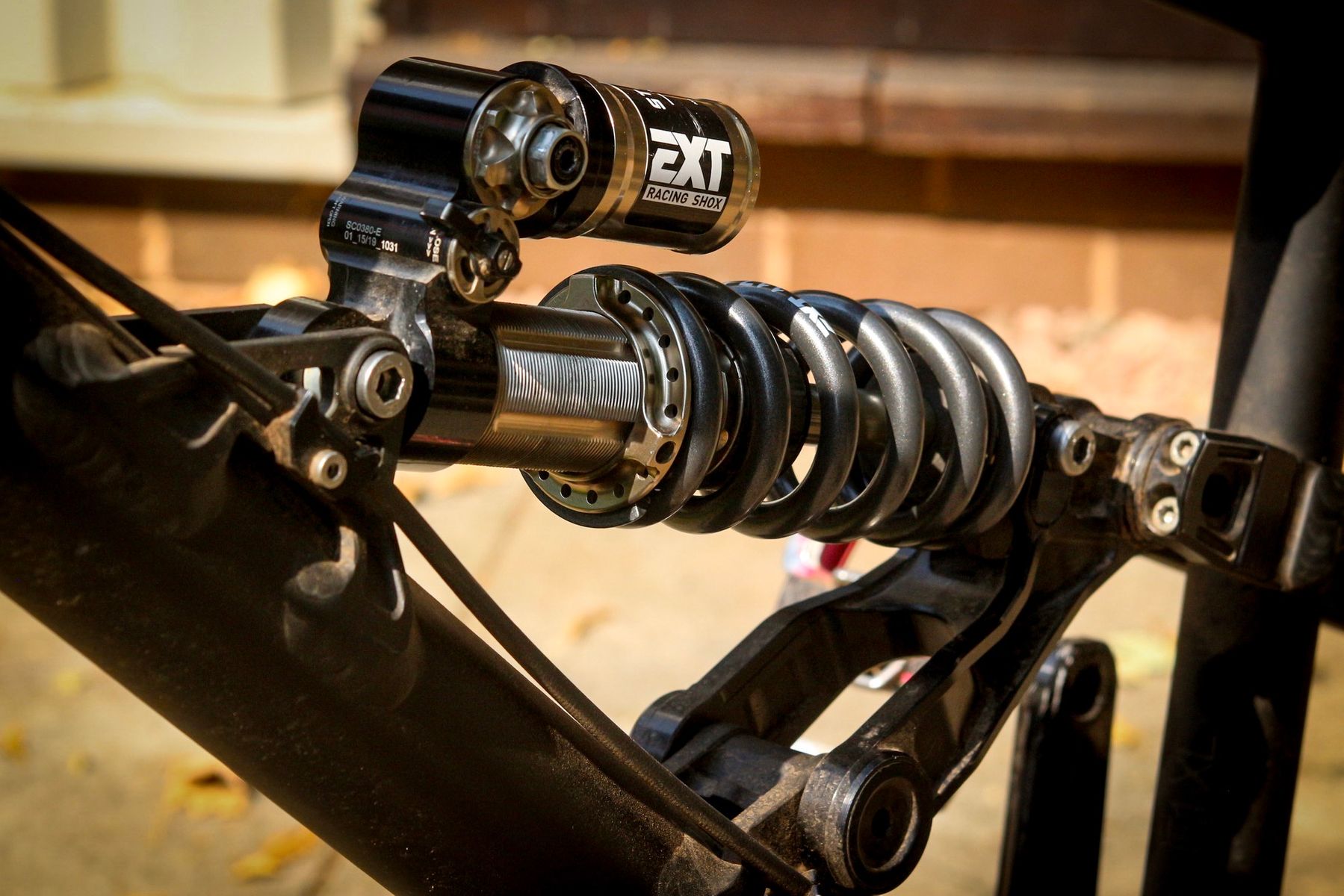
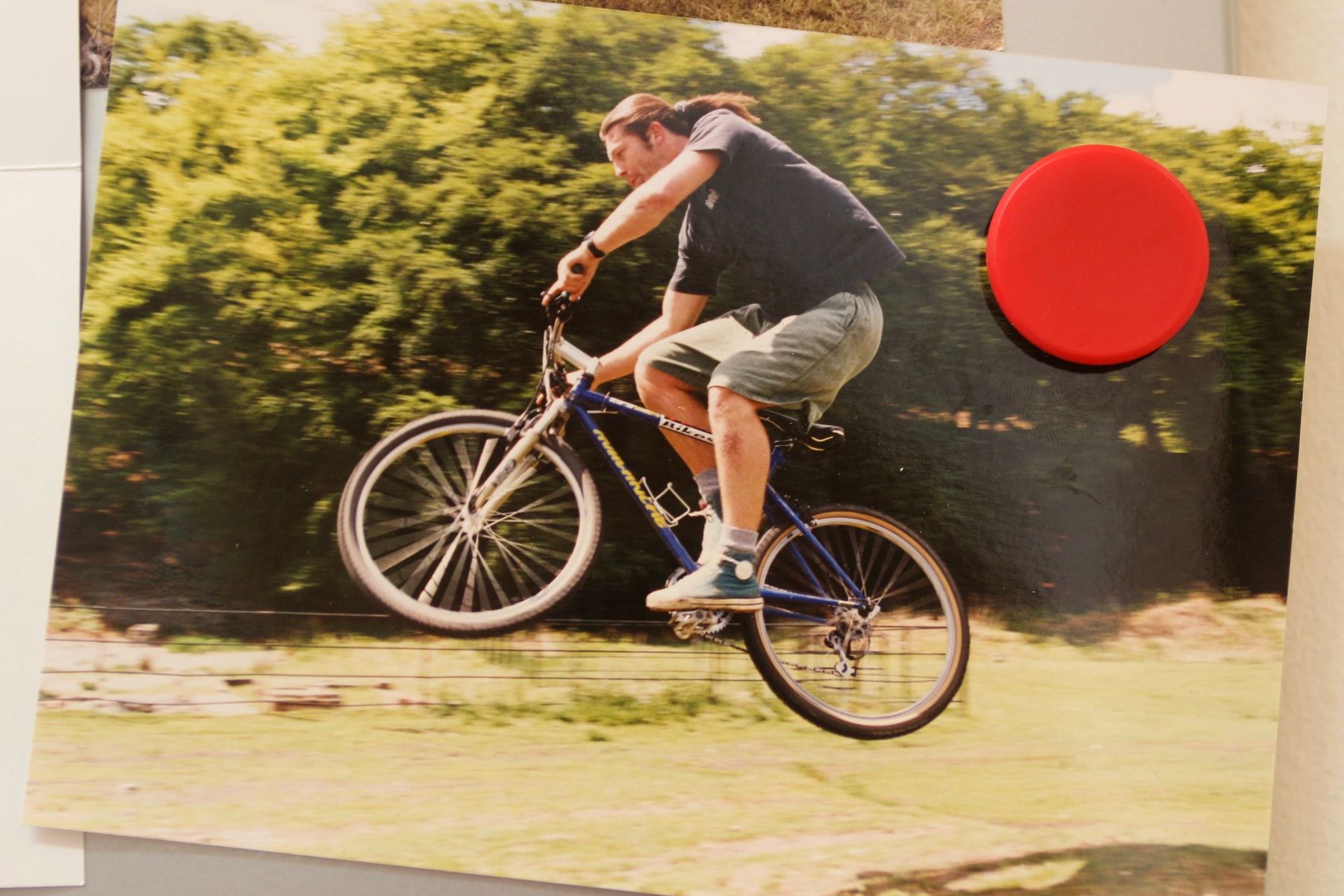
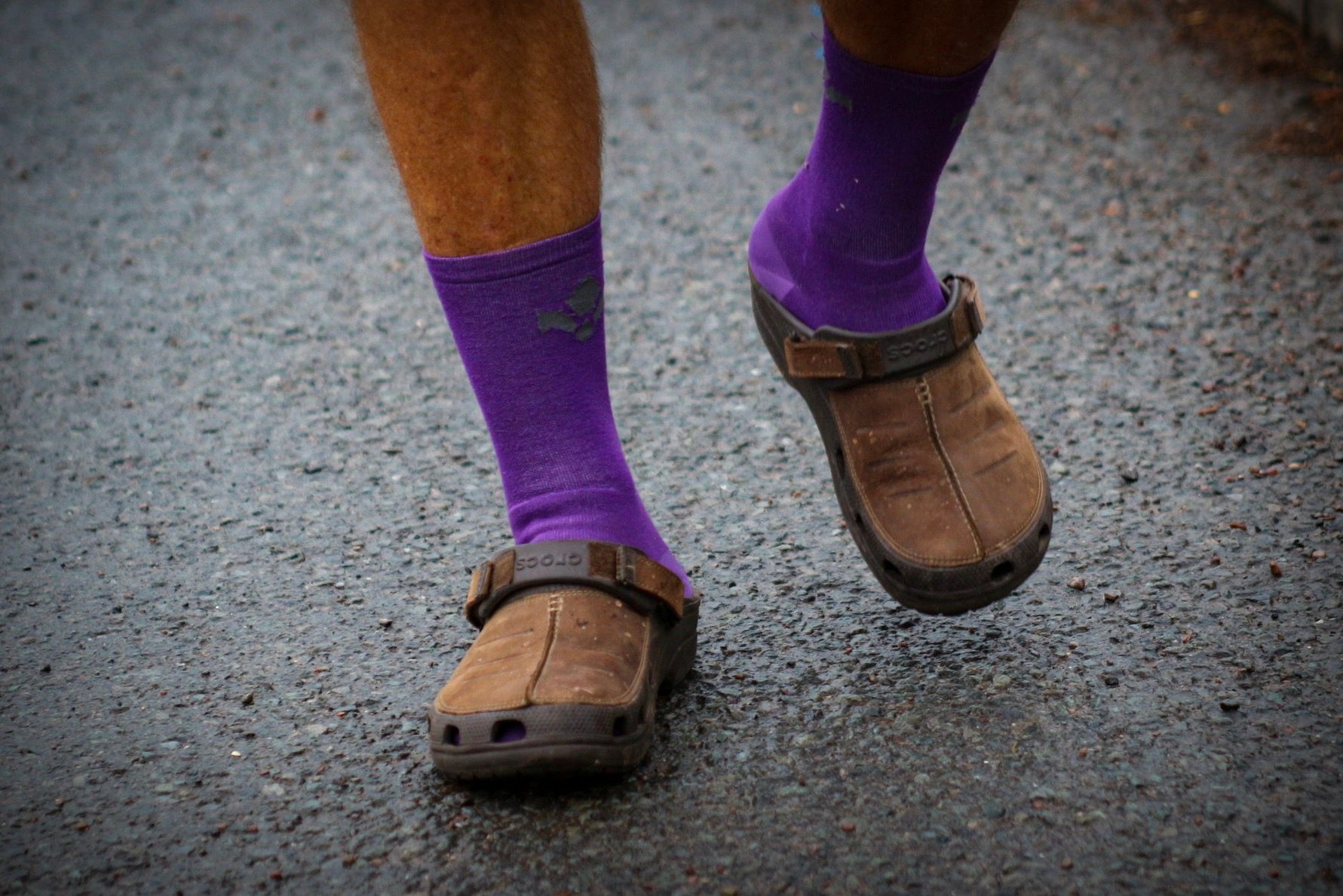
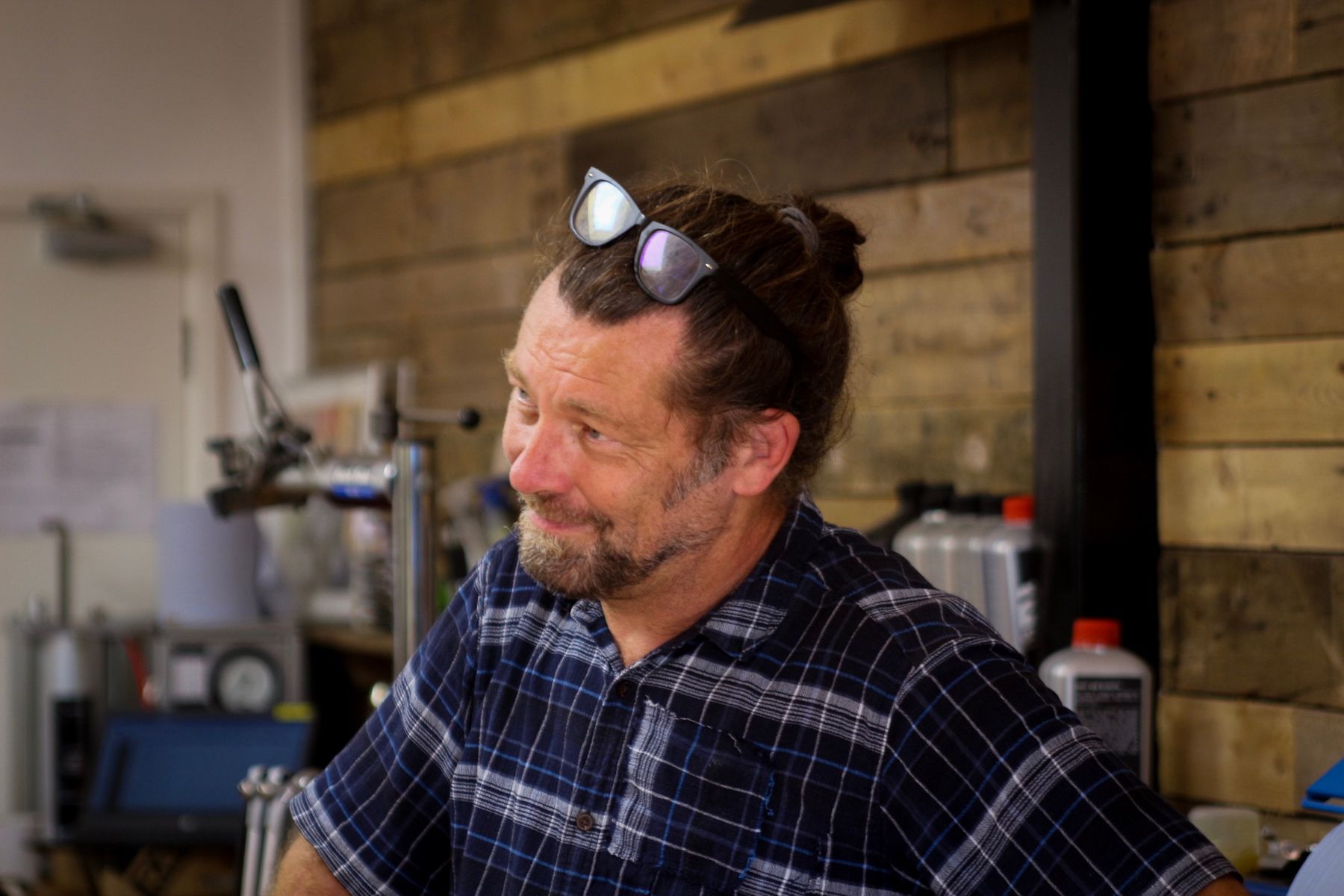

Great stuff… Please give Chris a regular slot!
That’s a very refreshing interview and view of the world, give that man a regular column to stir up the ant’s nests.
“You do it as a 54 year old feels like you’re doing it as a 5 year old…” Amen Chris 🙂
Hmmm… On one hand he is perfectly right. Go back to local stuff, local producers, local products. Repair, reduce, recycle..
On the other hand sounds a bit… patronizing?
Realistically how many people can afford 6k bike or 11 weeks trip by motorbike to China?
But fair play to him acknowledging the fact that 6k bike purchase looks obscene in comparison to people begging for food on the street.
System is broken, for sure. Unfortunately I don’t believe we are on the path of inventing anything better, any time soon…
Still interesting read, but much, much too short.
Cheers!
I.
Without wanting to put words in Chris’ mouth, I wonder whether the point might be that if you can afford to fly to China for a trip, maybe you should instead be thinking about overland travel by train, motorcycle, etc. And by extension, rather than doing such a trip every year (easy enough, I imagine, if you have normal UK holiday allowances and enough cash) make it a big 11-week sabbatical every 5 years or so.
There is of course a whole other argument about folk not being able to afford 6k bikes or international travel. I think that comes across in the interview. But to some extent you have to speak to your audience; and if your business is high-end MTB stuff, your audience is probably relatively wealthy on the whole.
Well played sir. Very well played…
OK, so this is probably a naive view, but surely it is international trade that enables wealth transfer from richer to poorer nations (ideally). If we shut out international manufacturing/supply chains and have everything within our own borders, how do other nations benefit from our wealth? Whatever the (very real) issues in China around democracy (lack of) and human rights there is no doubt that their development as the world’s workshop has resulted in an astonishing reduction in overall poverty for their people (and huge issues for the global climate of course but forgive me if I swerve that one here :-)).